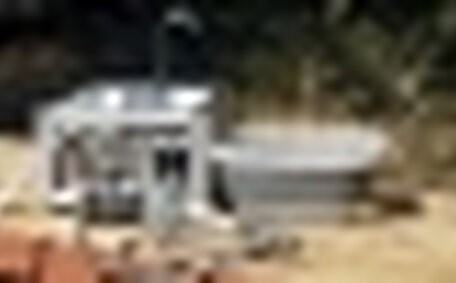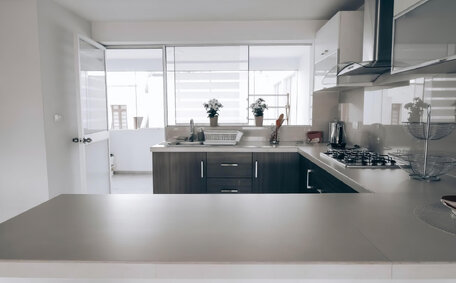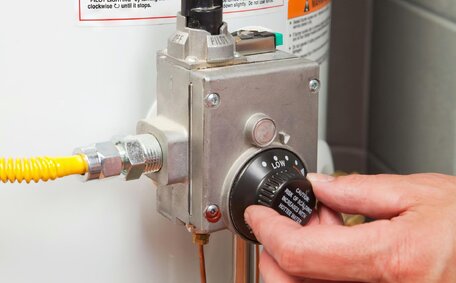Is it Legal or Safe for Me to Install a Gas Appliance?
DIY stove installation, especially with natural gas, is generally discouraged due to safety concerns and regulations. In compliance with Australian regulations, only licensed and certified gas fitters with the requisite qualifications and permits are authorised to undertake installation or service your gas appliances.
Engaging in stove installation without the proper qualifications is illegal; hence, it’s critical to employ a licensed professional to guarantee gas safety. Improper installations could lead to gas leaks, explosions, carbon monoxide poisoning, and fires, underscoring the need for a gas safe environment. Violating regulations may also lead to fines or legal problems.
A licensed professional is essential for the installation of gas appliances like cooktops, hot water heaters, or ovens, ensuring correct gas connection and related tasks. Installers use their specialised training and expertise to secure the safety and efficiency of your appliance in key areas, including:
- Sizing, positioning, and connecting gas lines properly
- Ensuring adequate ventilation for combustion appliances
- Performing every gas safety check and testing for leaks, especially when installing a new gas oven
- Ensuring compliance with all applicable building codes and standards
Hiring a professional gas fitter not only ensures the safe operation of your gas stoves and appliances but also enhances efficiency. They also provide annual servicing and maintenance.
For installation or replacement queries, seek advice from a skilled, licensed gas plumber. They can assist in evaluating your circumstances and verify that any tasks undertaken adhere to all legislative mandates and industry would need.
Understanding Complex Gas Appliance Installation Requirements
Qualified gas professionals can install gas appliances using specialised technical knowledge, tools, and materials to make sure they function correctly and safely. The complexity of gas appliance installations requires significant effort to navigate at every step.
Specialists must comply with rigorous industry standards and local council codes for appropriate gas line sizing, routing, connectors, valves, and ventilation for each appliance. Accurate measurements, suitable end connector fittings, and component compatibility are critical.
Throughout the installation, gas fitters connect the appliance to the gas port, metres, regulators, and manual shutoff valves utilising a trustworthy gas connector. Each connection point requires a precisely fitted connector, such as a bayonet fitting, to prevent leaks after testing. One small leak or improper connection can lead to dangerous accumulation of any gas, so always check your connections thoroughly.
When comes to managing highly combustible fuel, installations involving gas can be more complex than electric ones, with intricate pipe routing that must remain completely sealed everywhere. Certified tradespeople with gas system expertise can swiftly complete installations, showing proficiency beyond that of electric range installations.
While minor tasks may be suitable for DIY, the complexity of gas appliance installation requires qualified technicians. Attempting a DIY gas installation risks hazardous compliance issues and safety consequences.
Qualifications Needed for Gas Appliance Installations
For the legal installation of gas appliances in Australia, tradespeople must be recognized as licensed gasfitters, endowed with certain qualifications and credentials. This ensures they have the proficiency for tasks such as ensuring your new gas stove is safely and compliantly installed.
At a minimum, gas fitters must possess a gas work licence, often available for pursuit at home centers or institutes, issued by the state regulatory body after completing an approved gas fitting course. Requirements vary slightly between states, but generally involve:
- A certificate III trade qualification in gas fitting
- 1-2 years of on-the-job experience under supervision
- Passing exams on regulations, standards, procedures, and safety
In addition, to perform a gas stove installation, gas fitters require extra licences and permits related to their expertise with specific appliances. These credentials confirm they can safely handle complex tasks like sizing pipes, leak detection, ventilation assessments, flame adjustment, and pressure testing.
Riverwood Plumbing’s team goes beyond industry standards with gas fitters that hold advanced qualifications and top-tier training.
For new gas stove installations, replacements or servicing, you can trust our experts to safely handle your gas appliances.
Hiring a Licensed Professional Gas Fitter
We strongly advocate for engaging a fully licensed and accredited gas fitter for all your gas appliance installations and maintenance necessities. improper installation by an unqualified person, which could compromise gas system integrity, can lead to hazardous issues like gas leaks, fires, explosions, or carbon monoxide poisoning.
State-issued gas work licences certify that professional gas fitters have completed substantial training and testing. They are experts on safely routing gas lines for your gas range, ensuring leak-proof connections at all joints, setting up adequate ventilation for combustion appliances, and performing rigorous checks after installs.
At Riverwood Plumbing, our gas fitters carry full liability insurance and guarantee their workmanship. Managing all permit applications diligently, we ensure strict conformity with Australian Standards and local council regulations, having serviced numerous gas ovens with a remarkable safety history.
For new purchases like your gas cooktop, renovations, or annual servicing of your gas stove, gas cooktop installation, oven or gas heater, I can assure you that accredited technicians are the only ones to trust. Avoid taking risks - the small upfront cost investment could prevent tremendous financial, property or health consequences down the line.
The Gas Appliance Installation Process
Installing a new gas appliance or replacing an existing gas one requires careful planning and execution by qualified professionals to ensure safety. Here unfolds a stepbystep guide of the gas appliance installation procedure, adeptly conducted by licensed technicians at Riverwood Plumbing:
Initial Assessment
The installation starts with an inspection of the job site to hook up the new appliance:
- Determine proper placement and clearances
- Evaluate your current gas pipe, valves, and venting systems
- Take precise measurements
- Create equipment list and verify availability of special connectors or parts
Installation Day
On the day of installation, technicians will initiate the process by preparing and starting the installation of gas connections and counterparts:
- Shut down the gas supply to your residence and use a leak detector for verification
- Disconnect and remove your old gas appliance if replacing an old one
- Modify or install new gas supply lines and valves as needed, including the use of a street elbow where required
- Mount and integrate the appliance into your space with precision
- Connect gas and electricity lines using proper fittings
- Utilise teflon tape to seal all connection points
- Verify stable gas pressure and test for leaks
- Power on appliance for operational checks and adjustments
Completion
Technicians will:
- Conduct safety briefings on operation and maintenance
- Review warranty details
- Provide all installation compliance paperwork
- Clean up the work area
- Offer annual servicing options to maintain quality in your work
Each step is vital for guaranteed safety and performance. Depend on Riverwood Plumbing’s experienced team for a flawless installation of your new gas appliance.
Getting Necessary Permits and Meeting Codes
To install your gas appliance requires obtaining proper permits and inspections to ensure compliance with plumbing codes and standards. As licenced experts, Riverwood Plumbing handles this process for clients.
After an initial assessment, we file paperwork with local councils on your behalf, securing approvals before appliance installation begins. This covers aspects like:
- Zoning regulations
- Required safety tests and features
- Inspections from local authorities
During installation, our gas fitters follow stringent industry best practises outlined in Australian Standard AS/NZS 5601. We comply with manufacturers’ specifications and state plumbing laws.
Once the appliance is adeptly integrated and assayed for your kitchens, Riverwood Plumbing arranges the requisite inspections with the local gas authorities. We only pass compliance and activate gas lines after obtaining green lights from inspectors. You receive full documentation for peace of mind.
Meeting safety codes and getting proper permits is a complex process, but we make it smooth and hassle-free while ensuring your new gas appliance meets every legal requirement.
Gas Leak Checks and Testing for Safe Appliances
After a gas appliance installation, it is crucial for technicians to conduct thorough checks for potential gas leaks. At Riverwood Plumbing, we take every safety precaution using professional-grade equipment and rigorous testing procedures.
Our skilled gas plumbing professionals rigorously check gas concentrations during specialised leak detection routines. We test connection points, valves, end fittings, lines, and seals for any signs of leakage, being vigilant about gas safety in your system both before and after firing up appliances. Technicians also look for visual signs like debris or a loose gas cock.
For appliances with flames, such as your gas cooker or cooktops, experts perform calibrated combustion tests. These verify optimal air-gas ratios for clean, efficient burner operation without carbon monoxide or other issues.
Final safety checks on your oven involve soap tests on all joints and seals to check for small bubbles, operational tests to confirm functionality, and analysing burners at minimum and maximum flame heights. We issue compliance certificates only after appliances pass all assessments.
While checking for gas leaks yourself using soapy water is reasonable, it’s best to use gas installation professionals for leak checks and installations for greater safety. Our experts use the proper tools and testing know-how to certification standards. Trust Riverwood Plumbing to keep your new stove and home safe.
Regular Maintenance to Prevent Issues
To keep gas appliances operating safely and efficiently over time, its important to have them regularly serviced by qualified technicians. We recommend arranging annual maintenance checks by licenced services like Riverwood Plumbing.
During maintenance sessions, our experts meticulously inspect your appliances and any associated installations. Experts clean or replace worn components, adjust flames and pressures, check for gas leaks in heating systems, and confirm the operational integrity of safety mechanisms.
Preventative maintenance helps spot potential issues early before they become dangerous or costly breakdowns. It also maintains peak efficiency so you get the most out of each appliance.
Over time and with consistent use, critical components of gas appliances such as thermocouples, regulators, and pilot light assemblies may fail. Sealants and hoses can dry out or crack. Regular upkeep heads off problems.
I don’t recommend taking chances with the safety and performance of your gas appliances. Depend on Riverwood Plumbing to maintain the prime condition of your appliances through regular upkeep. Feel free to call us at your convenience to arrange a service appointment.
Signs of Improper Installation to Look Out For
Improperly installed gas appliances, like those with worn black gas pipes, can be extremely hazardous. Watch for these signs of incorrect or faulty installation:
- Gas odours or rotten egg smells anywhere in your home
- Visible sputtering flames on your stove cooktop or gas stove oven burners
- Soot buildup around appliances
- Improper, irregular, or popping sounds when appliances ignite
- Accumulation of moisture near appliances
- Damaged or cracked gas lines
- Appliances tipping over easily
- Abnormal property damage from heat or leaks
If you experience these warning signs, immediately turn off the gas valve to the concerned appliances and reach out to a plumber near you, such as Riverwood Plumbing, without delay. Do not operate appliances showing these signs, as catastrophic gas leaks, fires, carbon monoxide poisoning or explosions could occur. Stay safe until technicians can properly inspect, repair and certify installations.






